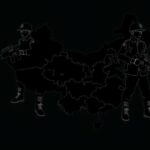Chinese Hackers Target Trump and Vance’s Phone Communications in Cyber-Espionage Effort
Chinese hackers connected to the government have targeted the phone communications of former President Donald Trump and vice presidential nominee J.D. Vance as part of a larger cyber-espionage campaign aimed at high-ranking U.S. officials. U.S. authorities are investigating the breach, which underscores ongoing concerns regarding national security and foreign interference in elections.
Chinese hackers linked to the government have reportedly targeted the phone communications of former President Donald Trump and vice presidential nominee J.D. Vance as a part of a broader cyber-espionage initiative directed at high-ranking U.S. officials. Sources acquainted with the situation informed CNN that hackers also focused on members of the Biden administration. Recently, U.S. officials alerted the Trump campaign about the breach involving Trump and Vance. In response, Trump campaign spokesperson Steven Cheung condemned the campaign of Vice President Kamala Harris for allegedly enabling China’s actions. It remains uncertain what specific data the hackers may have accessed, but communication records of both current and former senior U.S. officials are considered highly valuable to foreign intelligence operatives. In a statement from the FBI and the U.S. Cybersecurity and Infrastructure Security Agency (CISA), the government is currently investigating unauthorized access to telecommunications infrastructure linked to the People’s Republic of China. After the FBI recognized the hacking incidents aimed at telecommunications firms, they promptly informed the affected companies and offered technical assistance while disseminating information to support additional possible victims. The investigation is ongoing. The New York Times was the first to report on the incidents involving Trump and Vance’s phones. This hacking effort is part of an extensive campaign attributed to Chinese hackers, which has recently infiltrated numerous U.S. telecommunications companies. Investigators suspect the hackers are in pursuit of sensitive national security data, including, in certain instances, information pertaining to wiretap warrant requests submitted by the Department of Justice. However, the sources indicated that there is no evidence suggesting that the hackers’ search for data on Trump and Vance pertains to U.S. law enforcement activities. Prominent American broadband and internet service providers, including AT&T, Verizon, and Lumen, have also found themselves in the crosshairs of these hackers. The Chinese government has alleged the claims and accusations against them. This incident emerges amidst ongoing efforts by China, Iran, and Russia to influence or surveil various facets of the U.S. electoral process. While China has not engaged in a concentrated effort to sway the presidential election, it has targeted a minimum of ten congressional, state, or local electoral campaigns through covert social media strategies, according to U.S. intelligence assessments.
The issue of cyber espionage has escalated in recent years, particularly with the involvement of state-sponsored actors targeting sensitive information from high-profile individuals and government officials. Notably, Chinese hackers have been implicated in a range of cybersecurity incidents, aimed at securing insights into national security matters and government communications. This incident involving former President Trump and J.D. Vance underscores the urgency with which U.S. authorities must confront threats to their telecommunications security and the integrity of the electoral process. The actions of these hackers elevate concerns regarding foreign interference, particularly during election years when the political landscape is most vulnerable.
In summary, the targeting of Donald Trump and J.D. Vance’s communications by Chinese hackers highlights a significant security breach that raises national security concerns. The investigation by U.S. authorities emphasizes the need for vigilance against foreign espionage activities. As the political climate intensifies in the lead-up to elections, it is vital for officials to safeguard sensitive information and deter further attempts at cyber intrusion. This situation encapsulates the broader context of geopolitical tensions and cyber warfare tactics currently at play in international relations.
Original Source: www.cnn.com







Post Comment